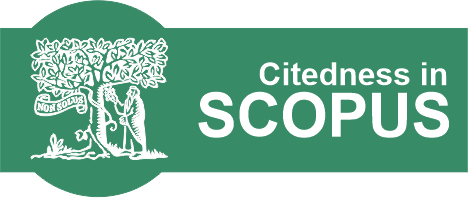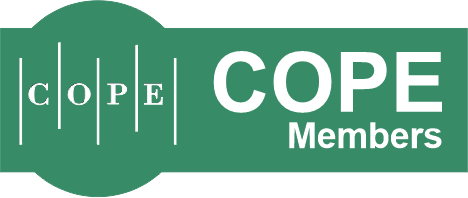The Effect of Story Completion on Students' English Speaking Skill: A Quasi-experimental Study
Keywords:
quasi-experimental design, speaking skill, story completion, English learning, communicative techniqueAbstract
This study investigates the effect of story completion on students’ speaking skills in English learning at the second grade of junior high school in Kecamatan Mandonga, Kendari, Southeast Sulawesi. A quasi-experimental design was applied with two groups: the experimental group was taught using story completion activities, while the control group was taught through conventional methods. The participants consisted of 60 students, divided equally into experimental and control groups. Data were collected through pre-tests and post-tests using a speaking rubric assessing fluency, vocabulary, grammar, pronunciation, and comprehension. The results showed that the experimental group achieved a higher post-test mean score (74.8) compared to the control group (65.1). The hypothesis test in this study, conducted using an Independent Sample T-test, showed a significance (2-tailed) of less than 0.05, leading to the rejection of the null hypothesis (H0) and the acceptance of the alternative hypothesis (H1). This study implies that English teachers, particularly in Southeast Sulawesi, should incorporate story completion as a communicative technique to foster students’ oral competence.
References
Abdul Jalil Jum’uatullaila, Buhari, Syahrir L, & Sam Hermansyah. (2025). The Influences of Using Quizizz in Student’s English Learning Outcomes. INTERACTION: Jurnal Pendidikan Bahasa, 12(1), 1030–1040. https://doi.org/10.36232/interactionjournal.v12i1.3526
Brown, H. D. (2010). Language Assessment: Principles and Classroom Practices.
Brown, H. D., & Lee, H. (1994). Teaching by principles: An interactive approach to language pedagogy (Vol. 1). Prentice Hall Regents Englewood Cliffs, NJ. https://www.academia.edu/download/118665358/fm.pdf
Cohen, L., Manion, L., & Morrison, K. (2002). Research methods in education. routledge.
Creswell, J. W., & Creswell, J. D. (2017). Research design: Qualitative, quantitative, and mixed methods approaches. Sage publications.
Fraenkel, J., Wallen, N., & Hyun, H. (2006). How to Design and Evaluate Research in Education 10th ed. McGraw-Hill Education.
Hamouda, A. (2013). An exploration of causes of Saudi students’ reluctance to participate in the English language classroom. International Journal of English Language Education, 1(1), 17–34.
Hamsia, W. (2018). DEVELOPING STUDENTS’SPEAKING ABILITY THROUGH STORY COMPLETION. Jo-ELT (Journal of English Language Teaching), 5(1), 57–64.
Huang, S., Lu, Y., & Ou, Y. (2024). Interaction Hypothesis and its Application in Second Language Acquisition. Arts, Culture and Language, 1(7). https://doi.org/10.61173/zwhetk48
Hukom, S. J. (2019). Story completion: A technique in teaching speaking. Tahari Journal, 16(2), 1–9.
Nor, H., Aulia, I., & Rahman, M. A. (2024). FOSTERING ORAL PROFICIENCY THROUGH STORY COMPLETION IN LANGUAGE DEVELOPMENT UNIT CLASS. International Journal of English Learning and Applied Linguistics (IJELAL), 4(2), 110–127.
Pallant, J. (2016). EBOOK: SPSS survival manual. McGraw-Hill Education (UK).
Rahman, A., Marvel, A., Mansyur, A., Anggriani, A., Man, B. B., & Somadayo, E. A. (2024). “1000 LILIN ANAK DESA INDONESIA TIMUR” Dari Indonesia Timur Untuk Dunia. GUEPEDIA. https://books.google.co.id/books?hl=id&lr=&id=T2FOEQAAQBAJ&oi=fnd&pg=PA3&dq=%E2%80%9CKondisi+geografis+dan+sosial+ekonomi+di+beberapa+daerah+di+Sulawesi+sering+memengaruhi+akses+siswa+terhadap+materi+dan+lingkungan+yang+mendukung+pembelajaran+bahasa+Inggris+yang+optimal.&ots=7bFYkWzgvw&sig=ixlI_-FtTiKrRUXPlG0y7SvWRig&redir_esc=y#v=onepage&q&f=false
Sam Hermansyah, & Ahmad Rizal Majid. (2025). The Use of Probing-Prompting Technique to Improve Reading Comprehension of Eighth Grade Students. INTERACTION: Jurnal Pendidikan Bahasa, 12(1), 543–556. https://doi.org/10.36232/interactionjournal.v12i1.2660
Wardhani, D. Y. (2018). THE EFFECT OF STORY COMPLETION TECHNIQUE ON STUDENTS’SPEAKING ABILITY AT THE FIRST GRADE OF STATE SENIOR HIGH SCHOOL 1 TEMBILAHAN. Universitas Islam Negeri Sultan Syarif Kasim Riau.
Wu, W. C. V., & Wu, P. H. N. (2008). Creating an authentic EFL learning environment to enhance student motivation to study English. Asian EFL Journal, 10(4), 211–226.
Zondag, A. (2024). Student teachers’ experience with improvisation activities for spontaneous speech practice in English. Language Teaching Research, 28(6), 2190–2213. https://doi.org/10.1177/13621688211044725
Downloads
Published
How to Cite
Issue
Section
License
Copyright (c) 2025 Citra Prasiska Puspita Tohamba

This work is licensed under a Creative Commons Attribution-ShareAlike 4.0 International License.



































